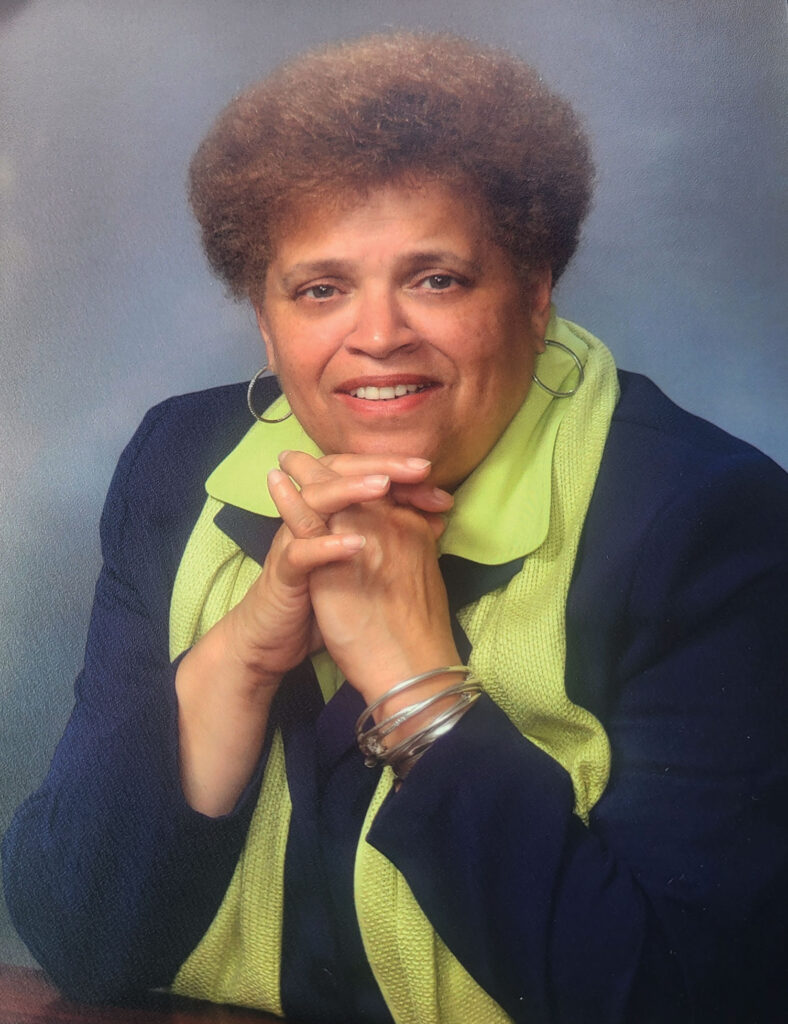Saundra Graham, political pioneer in Cambridge, 81
Former state rep was fierce housing advocate

Harvard was conducting its sedate commencement exercises in 1970 when a young community activist from a nearby section of Cambridge mounted the stage, bullhorn in hand, with 20 other protesters.
“We are here to demand that Harvard University give to the residents of the Riverside area free land so that we can build low-income housing for the poor people of Cambridgeport,” Saundra Graham, who was 28, declared to some applause. “We have been here longer than you’ll ever be here and we are not going to go because of you.”
Harvard President Nathan Pusey ordered the protesters to leave the stage. They refused. Black campus police offices declined to enforce the order.
The disruption lasted 15 minutes until a few Harvard officials agreed to meet the protesters elsewhere on campus to discuss the school’s acquisition of private homes in Riverside, displacing longtime residents of a historically Black neighborhood where white ethnics also lived.
The bold protest made worldwide news and catapulted Graham into politics. She was elected the first woman of color on the Cambridge City Council the next year and, in 1976, the first Black woman from the city in the state legislature. She held both offices simultaneously for about a dozen years.
Graham, 81, died from an undisclosed illness June 23 as she was returning to her home, still in Riverside, from a hospital, her sister Sheila Headley Burwell said.
After more than a half century, Burwell said the Harvard protest remains her favorite story about her older sister, whose impact was outsized compared to her stature.
“She’s only four-eleven, and here she comes with a bullhorn and captured their attention,” Burwell said. “A four-eleven giant.”
Riverside residents had unsuccessfully sought a meeting with members the governing corporation, but the negotiations prompted by the protest led to concrete results. Harvard agreed to build elderly housing on one site and halt its eastward expansion along the Charles River at Putnam Street.
“They would never have otherwise talked to us — the snobs,” Graham told the Harvard Crimson, the student newspaper, in 1995.
On the council and in the Massachusetts House, Graham continued her advocacy for affordable housing for low-income people. She pushed for rent control in the city and chaired the council’s Housing and Land Use Committee for more than a decade, bringing in federal funding to rehabilitate and modernize three public housing complexes.
In the legislature, she became a member of the Joint Committee on Housing and Urban Development. Graham also joined the handful of lawmakers in what was then called the Massachusetts Black Legislative Caucus, alongside Mel King, Bill Owens, Raymond Jordan and Doris Bunte, all of whom have passed in the last two years.
Unlike other Caucus members, Graham represented a white majority district and was not from Boston or Springfield.
“Her priorities were similar to ours but had a unique Cambridge flavor to it, particularly around affordable housing and land grabs that universities were involved in then, particularly Harvard,” said former state representative Royal L. Bolling Jr., another Black Caucus member at the time.
Graham also advocated for Harvard and MIT to offer more scholarships to Black students and for the colleges, major employers in Cambridge, to hire more Black people. “She was always pushing on that,” Bolling said.
The former legislator from Mattapan said Graham joined other Black Caucus members in taking an expansionist view of their roles.
“Civil rights, anti-war, apartheid, freedom, democracy for everybody, not just the district you represent,” Bolling said.
Graham, in keeping with her roots in progressive Cambridge, joined a movement calling for a freeze on nuclear weapons and urged nuclear disarmament.
After losing her reelection bid in 1988 to Alvin Thompson, Graham left the legislature. She retired from the Cambridge Council the following year.
Out of elected office, she worked on developing low-income housing in New Jersey and ran a drug rehab program.
Through her politics and activism, Graham became friendly with civil and human rights leaders of her time, including Shirley Chisholm, Angela Davis and Jesse Jackson.
“These are the people she placed in our company,” Burwell said. “She didn’t bring them to us as dignitaries.”
The Graham and Parks School, not far from the Harvard campus, is jointly named after the former state representative and Rosa Parks, whose refusal to give up her seat spawned the Montgomery, Alabama bus boycott that Martin Luther King Jr. led in the 1950s.
The second of 11 children, Graham was born in Cambridge on September 5, 1941, to Roberta Betts Postell and Charles B. Postell. In the late 1950s, Graham married Carl Graham Sr. The couple had five children before divorcing.
In the recent years of Graham’s retirement, Burwell said her sister was devoted to bringing together her extended family, whose members — descendants of the 11 siblings — number more than 125.
“She constantly wanted her family around her,” Burwell said. “She softened up in the family atmosphere. But when she was in a political atmosphere, she was tough … I think it was the lion in her.”
Graham is survived by her children, Carl J. Graham Jr., Rhonda L. Graham, Tina M. Graham Everett, Darrell B. Graham and David A. Graham; sisters Marlene Crawford, Cheryl Headley Moore, Sharon Freeman, Sheila Headley Burwell and Sonja Scoby; brothers Shawn and Kevin Headley; twelve grandchildren, eight great-grandchildren and one great-great-grandchild.
As of June 27, funeral arrangements were pending, and A. J. Spears Funeral Home in Cambridge had not established visiting hours.
Despite her political career taking Graham into public arena and contact with national figures, she maintained her home in Riverside and continued her advocacy for its residents, convening meetings of volunteers into her later years.
As recently as two weeks ago, Burwell said, Graham was working with her and a neighbor on a community concern.






